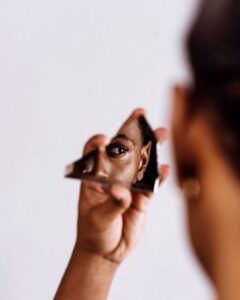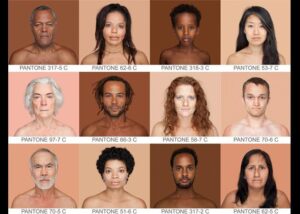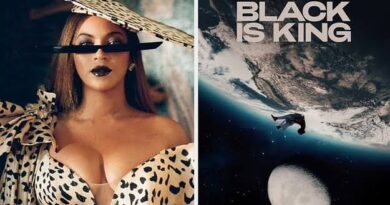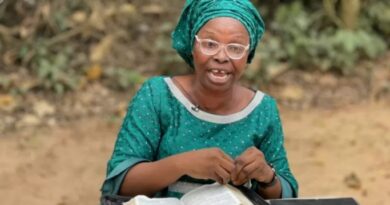Charity Begins At Home: Yvonne Okwara Calls Out Colourism

A news anchor for Citizen TV in Kenya, Yvonne Okwara, on her Instagram page, highlighted the irony of Kenyans standing up for the Black Lives Matter movement while light-skinned women are given preferential treatment in the country.
Ms. Okwara said she has been held to a higher standard than her colleagues; meaning that she has to work twice as hard because her complexion is a darker shade:
“we are all talking about black lives matters but we all need to reflect on our own culture in this part of the world… Darker skinned girls and women are treated differently. We have to work twice as hard, twice as smart to get ahead… Otherwise this is the standard that has been set: light skinned= beauty= opportunity= work= wealth= good marriage= beautiful children”.
She also said that this kind of attitude have fueled the skin-lightening industry and a lot of women have given in to it.

“We may all like to focus elsewhere, but charity begins at home. Before you stand up for the BLM movement, before you judge men and women for lightening their skin, telling them to love their skin, why not examine what got us here and how we got here?”
She also claims it has not been easy for her at work: “I’ve been expected to be smarter because, ‘you don’t have the looks so you’ve got to use your brain instead’. It hasn’t been easy – it’s exhausting at times… It needs to change.”
Click to see Ms Okwara’s post on Instagram:
Kenya is not the only African Country facing this problem; it is common in other African nations and possibly more in Nigeria.
In Nigeria, a lot of persons (most commonly the ladies) are bleaching their skin because they want to be seen, heard, and accepted. More so, foreigners are given preferential treatment than indigenes; even when they stand a better chance, they could loose a contract or job opportunity because they are locals. We need to wake up and learn to love the way we are, appreciate each other and give equal opportunities to everyone irrespective of their skin tone or color. The dark skin is beautiful just as much as the light skin. Indeed, charity begins at home.
Please share your thoughts!!!
Image credit: Instagram, autograph, medium.



